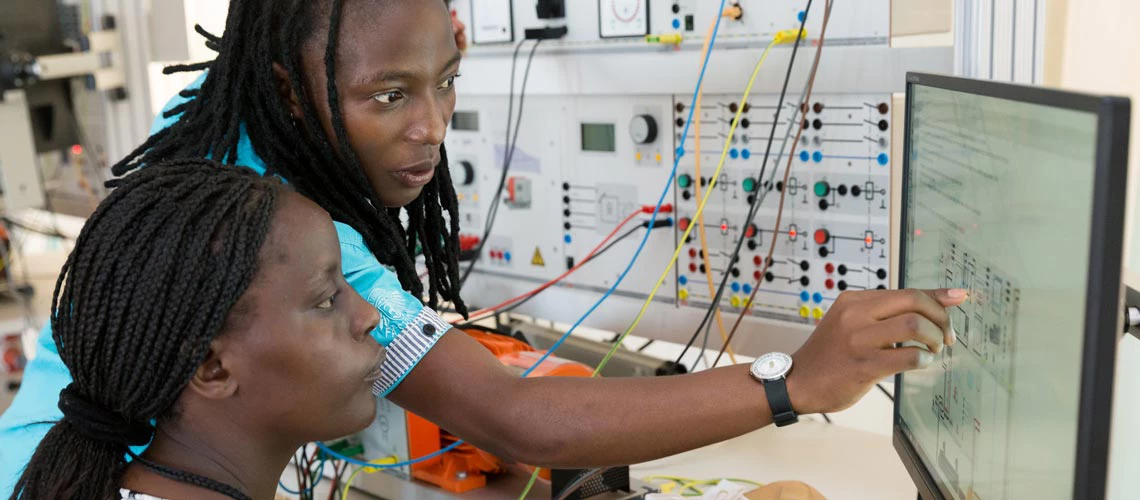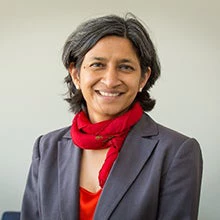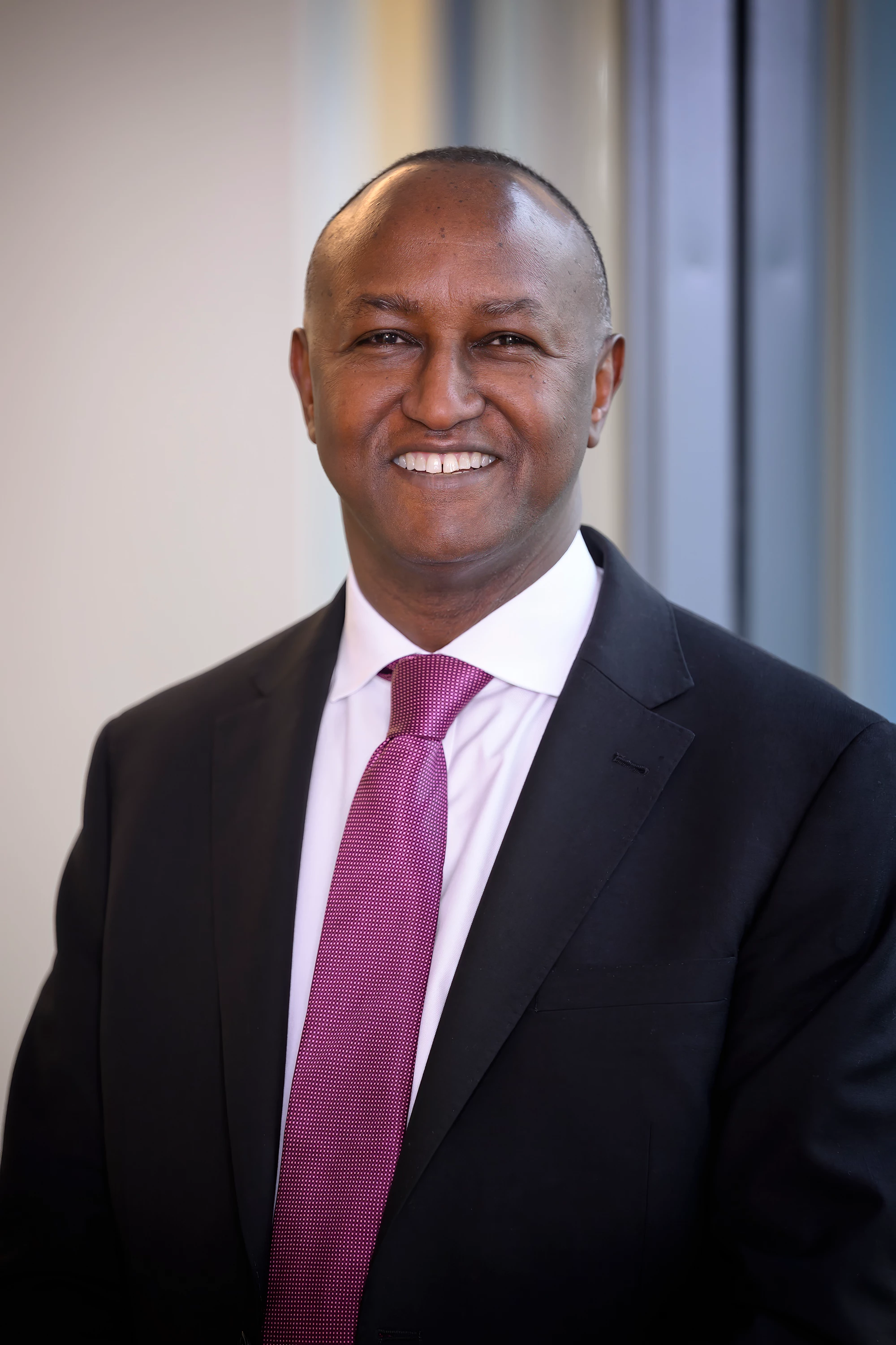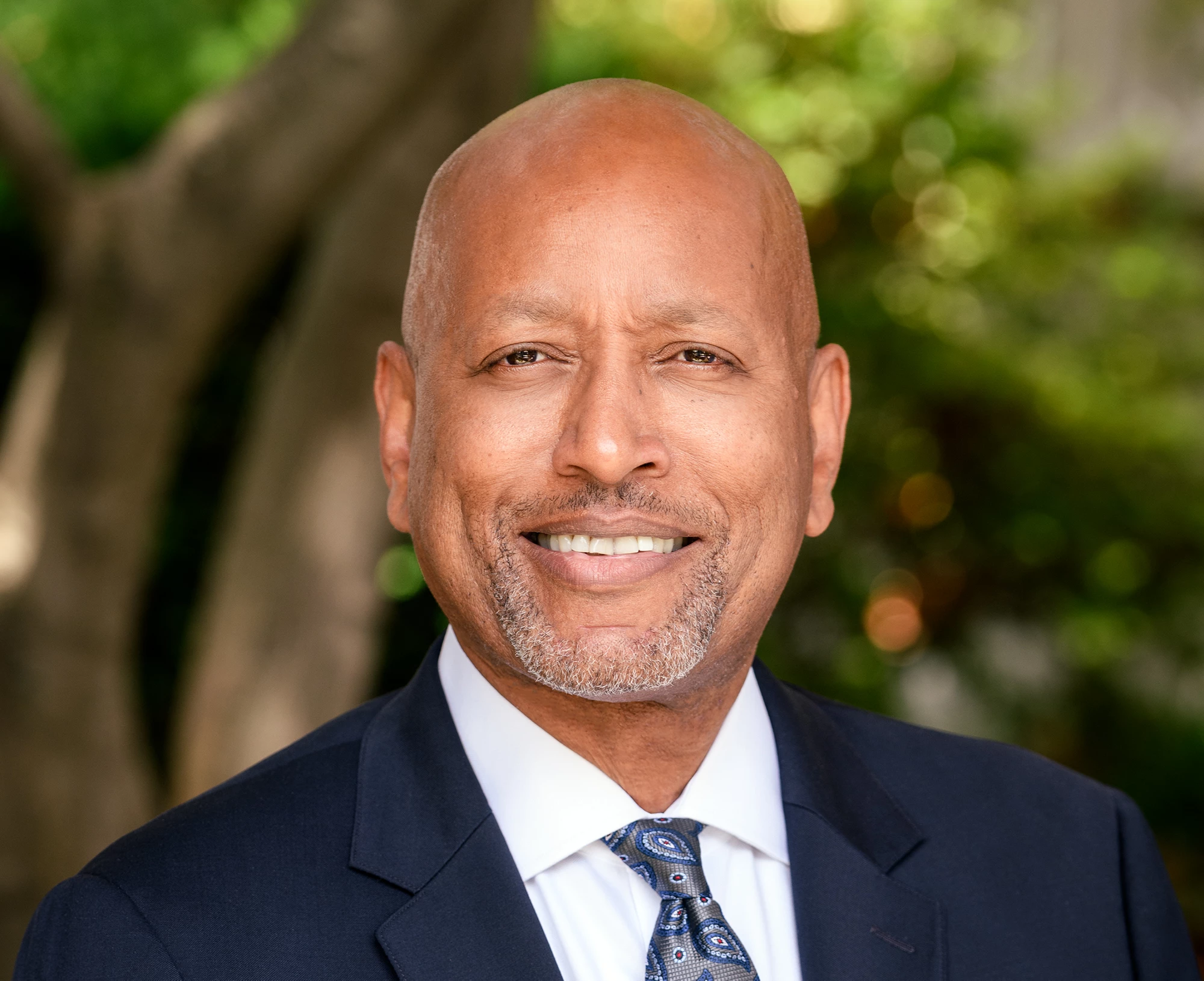 First year Master's students at the World Bank supported African Center of Excellence in Energy and Sustainable Development. Photo credit: Kelley Lynch/World Bank
First year Master's students at the World Bank supported African Center of Excellence in Energy and Sustainable Development. Photo credit: Kelley Lynch/World Bank
Gender equality is a fundamental human right, a matter of fairness and justice. It is a foundation for a peaceful and prosperous world and essential for development. It is also at the heart of the World Bank Group’s vision to create a world free of poverty on a livable planet.
However, progress in many areas of gender equality is essentially at a standstill. Globally, female labor force participation rates have stagnated for 30 years, one out of three women experiences gender-based violence, and women’s access to economic opportunities and leadership positions remain limited in many countries.
Gender equality is under threat across the world and hard-won gains are being reversed. Gendered norms, behaviors, and mindsets are deeply rooted and exacerbate the challenges. Crises, including pandemics, climate change, and forced displacement have disproportionately impacted girls, women, and sexual and gender minorities.
Removing barriers to gender equality unlocks economic productivity, reduces poverty, deepens social cohesion, and enhances well-being for current and future generations. In fact, closing employment gaps between women and men could yield as much as a 20 percent increase in long-term GDP per capita. There is also increasing evidence that women’s participation to address climate change is associated with better resource governance, conservation outcomes, and disaster readiness.
The public sector alone cannot remove the barriers women face—sustained support from the private sector and civil society is critical if we are to achieve gender equality in our lifetime. Meaningful progress needs to span public and private sector activities, country laws and policies, and personal lives. It requires sustained and broad commitment, and financing for evidence-based solutions. This is especially difficult in the current global environment of sluggish growth and rising poverty.
Inspiration for the way forward
At the World Bank Group, we have been reflecting on how to advance and accelerate the pace of change toward gender equality through the public and private sectors , building on the experience and lessons from implementing our first joint World Bank Group Gender Strategy (2016-2023). As part of those efforts, we launched the #AccelerateEquality campaign last year to take stock, raise awareness, and hear from partners on challenges and on what works. The launch followed 10 years from the publication of the seminal World Development Report on Gender and Development.
The proposed new World Bank Group Gender Strategy (2024–2030) aims to put forward the bold ambition to accelerate gender equality for a sustainable, resilient, and inclusive future, in alignment with the World Bank Group’s evolution.
The new strategy has three key objectives:
- Ensure foundational well-being by ending gender-based violence and elevating human capital.
- Expand and enable economic opportunities by improving equal access to more and better jobs, economic assets, and services such as care, digital, mobility, and other enabling services.
- Engage more women as leaders for a sustainable, resilient, and inclusive future.
The new strategy will reaffirm the World Bank Group commitment to nondiscrimination, inclusion, and equality of opportunity, encompassing sexual and gender minorities. It will acknowledge the disadvantages facing men and boys as well as the vulnerabilities arising from the intersection of gender with poverty, ethnicity, disability, and other characteristics. It will propose to involve men and boys to address issues specific to them as well as those that affect gender equality.
To drive change on gender equality, the World Bank Group will innovate, finance, and foster collective action in line with its comparative advantage. The world needs solutions based on data and evidence—as our causal evidence briefs and thematic policy notes show. Securing, allocating, and mobilizing resources effectively in and through the public and private sectors is essential, especially in this period of fiscal constraints. And accelerating progress toward gender equality will require concerted collective engagement with public and private sector actors, civil society, and international agencies.
No country, community, or economy can achieve its potential or meet the challenges of the 21st century without the full and equal participation of everyone. The World Bank Group will approach these complex challenges with realism and long-term commitment, acting together with our partners for a more equal and prosperous world for all. We invite you to read the proposed strategy and share your thoughts on it before it is launched in 2024.
The draft World Bank Group Gender Strategy 2024-2030: Accelerate gender equality for a sustainable, resilient, and inclusive future has just been released. We invite you to engage with us in our formal consultations from July to end-November 2023 as we develop the final strategy, which will be launched in 2024.
This current draft was informed by engagement and dialogue with stakeholders, partners and clients who have helped shape its current focus. Read the draft here and share your thoughts – email your feedback to: wbggenderstrategyupdate@worldbank.org.
Related:
More and better jobs: Unlocking the potential of South Asia’s women




Join the Conversation